Since its inception in 2001, Pacific Discovery has taken more than 2,000 students and many faculty-led groups on our experiential journeys. We value our incredible team of experienced, qualified and passionate Program Instructors. We have an excellent safety record, comprehensive safety management systems and a database of alumni, parents, advisers and faculty, who are happy to be contacted by you, to discuss their experience.
Pacific Discovery has undergone independent safety accreditations with Gap Year Association (USA), Year Out Group (UK), and OutdoorsMark (NZ).
Our summer, semester and gap year programs are grounded in the philosophy of experiential education, where learning is facilitated and hands-on. Our programs are overland journeys, blending cultural immersion, personal and leadership development, volunteer and community service projects, experiential education, wilderness exploration and optional transferable academic credit. Our Mission is to offer the world’s best experiential programs - providing insights into our increasingly global society, developing empathy for other cultures, furthering understanding of international issues, heightening appreciation for the earth’s wild places, and assisting you to stretch and grow.
Kiwi’s Rachel Sanson and Scott Burnett, founded Pacific Discovery in 2001, utilizing experience gained through working in environmental and outdoor education, teaching, tourism, grass-roots community development and extensive travels. From the start the focus was offering deeply meaningful programs where students would gain new insights and ways of thinking about our world, through educational journeys. These journeys were ethically sound, ensured a positive outcome for host communities, and a lower impact on the environment. Initially based in Oregon, they relocated Pacific Discovery's home to New Zealand in 2005 to raise family.
In 2018 the reins were handed to another kiwi, Zach Johnston. Alongside continued input from Rachel and Scott, Zach’s varied educational and leadership experience made him the perfect person to continue the focus on authentic and inspiring international travel. As a Senior Instructor in Leadership Development, General Manager in the Tourism Industry, Field Based Outdoor Educator, International Expedition Leader, and Operational Ambulance Officer with extensive travel experience around the world, his input into program development and commitment to consistency of service is apparent.
Today, Pacific Discovery runs 25+ programs annually. We continue to be a small and personal organization that strives to offer authentic, inspiring and pivotal experiences.
As an organisation, we remain passionately and personally involved in all aspects of the program, from answering phone and email enquiries, to researching, developing and evaluating programs. We even manage to get out and lead programs from time to time. This means you have a very personalized experience and can trust that we are always focused on providing you with an inspiring and safe journey with Pacific Discovery.
“I had an incredible experience! The amount that I grew as an individual is astounding. I learned how to be independent and shop for meals while keeping price and budget in mind. I would recommend this program to others because of how much I learned about myself. ”
Through the many spiritual experiences that we shared as a group on this program, I was able to straighten out my values and figure out what aspects of life are actually important to me. All in all, I had the time of my life on this trip!”
Read more
Danny Fournier, 2021
Hawaii Semester Program
Our Mission is to make the world a better place by providing extraordinary learning adventures that assist students in gaining the skills, confidence and insight to realize their potential in an increasingly global society; developing empathy for other cultures; furthering understanding of international issues; and heightening appreciation for the earth's wilderness and diversity.
The vision is for our programs and organizational practices to have a net positive impact on the world.
Our planet is facing critical threats – unsustainable resource use, overpopulation and global warming.
We believe that the current global economic model is unsustainable and disadvantages large swathes of our world’s population.
We believe that as a planet, the concept of nation states is damaging. One country’s decisions effect every other country, yet this is rarely a consideration in policy and decision making. The world is too connected and too small for nation states to be the ultimate authority.
We believe that individuals can make a positive difference in the world. We believe that to change the world we have to start with ourselves and work outward from there.
We believe that the most effective way to affect positive change is through education and role-modelling. You cannot compel people to change their habits, be more considerate, more empathetic or more environmentally considerate. It is far more effective if people choose to do this themselves because they come to see and believe it is the right thing to do.
Our focus is on teasing out learning that is embedded within hands-on experience. Facilitated experiences on our programs contribute to students building a broader understanding of themselves and the world.
We provide our students new lenses and paradigms to view the world through, assisting students to grow in the direction of clarity, purpose and hope.
We mentor our students to take an actively engaged and inquiry-based approach to their program experience. Through this, students gain self-knowledge, confidence and vocational direction.
We deal in ‘real’ experiences. These can be challenging at the time but with appropriate facilitation are ultimately beneficial and the catalyst for students growth.
All of our programs have a service learning component. We really enjoy this aspect of our programs and we work hard to ensure that the well-structured volunteer projects we arrange benefit both our partners and students. Volunteer projects allow our students to really immerse themselves in a place and share an experience with local people, bridging the gap that often exists between visitor and host.
We do not include volunteer activities simply to make our students feel good about themselves. Instead, service projects are planned around the expressed needs of a range of community groups, and non-governmental organizations (NGOs).
A lot of our students approach the service components of our programs inwardly focused on what they are going to gain from the experience. We turn this thinking around, and have them approach the volunteering without expectation of getting anything back for their efforts and with a true selfless desire to give of themselves. As Ghandi said, “The best way to find yourself is to lose yourself in the service of others.”
Service-learning is the interaction between doing something practical (such as planting trees) and gaining a greater knowledge of the 'why' (how it benefits an ecosystem or community, etc.). And what makes it beautiful is that it is an engagement on many levels. Sometimes what is most useful is just hearing someone else’s story, or it could be the physical work done. You won’t always see a tangible impact of your efforts, but the reward is offering yourself to something/someone and being offered a genuine connection, opportunity, and engagement in return.
We strive to shift student orientation from “let me help you” to “let me come alongside you and learn from you." This changes the way students view community, and the way the communities view themselves. The exchange serves to heal some of the stories we’ve learned about ourselves and others.”
When Scott and Rachel created Pacific Discovery, they were two young New Zealanders living in the United States. They were very conscious of the vast ocean between our old and new homes.
Covering 1/3 of the earth’s surface and larger than the entire combined land areas, the Pacific Ocean was named the ‘peaceful ocean’ by Spanish explorer Magellan during a voyage of discovery and the first circumnavigation of our planet in 1521.
Polynesian seafarers had earlier undertaken some of humanity’s greatest journeys of discovery over the 2,500 years preceding Magellan, as they gradually explored and settled the Pacific Ocean, voyaging from Asia to South America, to New Zealand and to Hawaii.
Magellan's voyage was an important early step in an accelerating process of making us aware of ‘our world’, a process that today is of critical importance as we stretch the capacity of our planet to provide for us all.
The name Pacific Discovery celebrates these early journeys of discovery and celebrates the journeys of discovery that our students undertake on our programs, as they deepen their understanding of our world, their understanding of themselves, and understanding the perspectives of others.
Our students undertake a Pacific (peaceful) Discovery - treading lightly on our world, learning the perspectives of others, and in the process becoming a force for peace and humanity.
Our logo incorporates a blue circle representing the Pacific Ocean. Inside this is the silhouette of two of our students. They are looking out from a peak. We love their embrace of the view and an openness to the world in all its richness, beauty and fragility. This moment encapsulates what our programs are all about.
“I had such a great experience growing and learning about myself. I got an in-depth view of what it’s like to live in Thailand and be apart of a new culture, especially during home stays and visiting rural villages. ”
Not only did I get to travel for almost 3 months and see all the beautiful things that Thailand has to offer, I have also seen the hard truth of a developing country and was able to deepen my global perspective. I was challenged and pushed out of my comfort zone and I’m so grateful I got to experience everything I did.
I would say this program was life-changing and exciting. Not only did I grow as a person, I made life long friendships and learned how to deal with situations in group settings. I’ve learned how to be a leader and how to adapt in a new setting, as well as how to be a global citizen and accept new cultures and values. This was a life changing experience not many people will get to have in their lives, and I’m so happy I got to be a part of the lucky few.”
Read more
Tanner Barnes, 2021
Thailand Semester Program
Human action impacts the world, whether it impacts the physical environment or impacts other living beings. Actions as simple as making a cup of coffee have effects that ripple outwards like a pebble thrown into a pond.
In recognizing that every action has impacts, our vision of sustainability is for our programs and business practices to have a net positive impact on the world. Our goal is for impacts from our programs and business practices to tip the scales towards the positive, so that the negative impacts that do occur are justified through a net overall benefit.
For us, sustainability means balancing the kinds of experiences we offer and the expectations of our students against the ability of our host communities to manage the social impacts of our visiting and the minimization of our impacts upon the environment, so that host communities benefit, environments are sustained and the ability for future travelers to enjoy the same experience is not compromised.
We’ve done a lot of soul searching about the sustainability of international travel. In a nut-shell, we believe that our programs can have a positive effect on the countries and communities we spend time in. We are an important source of income for many communities and provide valuable opportunity for meaningful cultural exchange. We utilize small scale local or family operated businesses for transport, activities and accommodation. We make our programs as low impact as possible, and facilitate as many learning opportunities as we can.
It’s about providing and having a more rewarding and fulfilling travel experience; being culturally sensitive; minimizing negative impacts on the environment; getting involved with the local people to ensure that your visitor dollar benefits the community and that the local people are involved in decisions that affect their lives. It’s about helping to conserve the world’s wild places; sustainability; and creating as much as possible a mutual exchange.
We will help you ‘get beneath the skin’ of the countries you visit. You will meet the local people on their terms, learn about history and culture, and enjoy wilderness experiences that don’t damage the environment. By travelling ‘responsibly,’ you’ll be making a positive contribution to the host communities and environments you visit, ensuring that future travelers will enjoy the same privilege.
Ethical travel is key to our philosophy. We do our best to operate ethically (and welcome any feedback), but we need your help. Following are some suggestions on how to minimize your impact and to engage in away that brings shared understanding. By following these guidelines, we believe you’ll have a far richer travel experience.
The more you know about your destination before you leave, the more you will be able to appreciate and understand it once you’re there.
Try to read up on the history and culture. There is a recommended reading list provided in the student log-in section of the website.
Many developing countries don’t have very good waste collection services, so try to leave excess packaging at home and when you’re buying toiletries, we recommend bio-degradable products.
Consider the clothes you’re packing. Many countries have a modest dress code. See the packing list for recommended clothing. By dressing inappropriately you may be putting a barrier between yourself and the people you want to interact with. Loose clothing that covers limbs not only protects you from the sun and insects, but also will ensure you’re more readily accepted by local communities.
Similarly, leave expensive jewelry, sunglasses and clothing at home – not only can it attract unwanted attention, but it’s a tactless reminder of the differing standards of wealth between the ‘west’ and the developing world.
Travel in a spirit of humility and with a genuine desire to learn about the people of your host country.
Meeting and interacting meaningfully with the local people and experiencing foreign cultures are often the greatest highlights of your travels. Your program will provide many opportunities for both. However, respect, consideration and an open mind are needed for these interactions to be mutually enjoyable. Don’t be surprised if local people – especially in remote areas – treat you with an equal measure of curiosity.
Put yourself in their shoes. It’s easy to judge another culture by our own standards and assumptions, but it’s worth keeping in mind that you are a guest in their community – please respect your hosts and behave as you’d expect a guest to behave in your home/country.
Other cultures have a different concept of ‘time’ – you’ll find it a lot less stressful if you go with the flow. Keep an open mind and don’t be too quick to judge; we do things differently back home, not better, just differently.
Don’t be too quick to generalize. One experience with a local culture is never going to accurately reflect the whole culture.
Please be respectful of local customs. Read up before you go, and ask your program instructor, or a local, if you’re unsure. Observe, listen, and take your cue from the community.
Please respect private property and sites where access may be limited, by asking permission. Please also abide by the laws of the country and community you’re visiting.
Cultivate the habit of listening and observing, not just hearing and seeing.
Support local traders by buying locally made goods.
It’s often difficult to resist the pleadings of beggars, be it children calling for sweets or adults with terrible disabilities. We strongly recommend you do not give money or other ‘gifts’ (such as pens or candy) to beggars. Doing so can help create a begging fraternity that undermines traditional culture and social structures, and almost inevitably eliminates any chance for equitable interaction between locals and foreigners.
Please do not give gifts indiscriminately. It is easy when travelling in the developing world, to be shocked by the seemingly primitive living conditions you encounter. Many travelers compare the locals’ resources with their own, and experience guilt or outrage at inequalities. In an attempt to relieve the guilt or inspire goodwill, many visitors distribute gifts of sweets, money and other items to local children and adults. However the lack of money, modern conveniences, or expensive playthings in developing countries does not necessarily indicate poverty. Most rural people have crops, animals and homes that provide sufficient food, clothing, and shelter. They work hard on the land and it, in turn, takes care of them. When the visitor hands out sweets or cigarettes, they contribute to dental and health problems that cannot be remedied locally; when they give money, they impose a culture of consumerism that might not ultimately be good for the community or the planet.
If you wish to be accepted by local people, you can perhaps share a conversation, teach a game from home, or share a photograph of your friends or family. If you wish to make a bigger difference, you can donate your time, money and supplies to organizations working to improve livelihoods.
Please ask before taking someone’s photo, and respect the persons wishes. Usually just lifting your camera with a questioning look will suffice as a request, although asking in the person’s own language is even better. A smile goes a long way.
We suggest that you don’t pay for taking photos of people – it becomes another form of begging, with similar consequences. Usually, if you take a little time to communicate with your subject, they will agree to be photographed – you end up with a more relaxed subject, and you each have a more enjoyable and memorable experience.
If you promise to send someone a photo, please follow though. We are more than happy to help out and can deliver prints next time we pass through.
Bargaining is a fundamental part of the shopping experience in many countries. What many visitors don’t realize is that it’s not about securing the lowest possible price. It’s about fair trade and reaching a tactical agreement that suits both parties. The social interaction is as much a part of the process as the financial outcome. Keep this in mind, and perhaps consider that low prices often mean low wages. Please don’t be mean-spirited, instead approach bargaining with a ready smile and a willingness to have an interaction. Does haggling over that last dollar really make a difference to you, compared to the vendor?
Ensure that you are appropriately dressed and aware of particular actions that may cause offence.
The countries we visit have a distinctive and exciting cuisine – local delicacies and shared meals with the local people are invariably the stuff of rich memories. We encourage you to support local restaurants by trying their food.
Disposing of waste properly in the developing world is more complicated than back home. Most of the countries we visit don’t have ‘organised’ waste disposal systems. In many places, almost all the waste generated was biodegradable or recyclable until the recent introduction of plastics and other consumables. The local infrastructure cannot cope with this change.
Please dispose of your own trash thoughtfully. Consider carrying a reusable cloth bag with you for purchases and carry a plastic bag with you for trash you generate during the day
Protecting water resources is vital. In many places shower and hand basin water drains unfiltered into rivers. We urge you to use biodegradable soaps, shampoos, and conditioners that don’t contain phosphates.
Ecosystems throughout the world are under enormous pressure from the unsustainable harvesting of resources. Please do not contribute to this by buying any souvenirs that have been made with wild animals or their parts, insects, shells and coral or tropical hardwoods.
Wild foods are popular in many countries. Economic pressures force people to disregard the complexity of eco-systems and how depredation of certain species can cause irreparable damage to entire environments. Please make sure that you do not contribute to this by eating wild food items in restaurants e.g. wild deer or shark-fin soup.
Save precious natural resources and energy. Don’t waste water; switch off lights and AC if you go out.
Many of our students return with a new perspective on life and a desire to be pro-active in ‘giving something back’. Please ask us about the grass roots social and environmental initiatives we support.
Adopt these guidelines for your future travels.
If you have any suggestions for existing causes you think worthy of our support, or if you have feedback on how we can reduce our impacts, please let us know.
Pacific Discovery values diversity, equity, and social justice. We aim to create educational experiences that further these values in their accessibility and inclusivity, educational outcomes, and student support. We seek and encourage the involvement of people from traditionally underrepresented audiences in our programs, activities, and workplace.
To work towards this vision, we have the following policies
Pacific Discovery does not discriminate by race, gender, ethnicity, nationality, religion, sexuality, or ability and states this clearly on our program application
We are mindful about the marketing content and images on our website and other publications so to represent our diverse population
We have a scholarship program offering financial assistance to students in the following under-represented categories within international education
Diversity Scholarship: We are offering a diversity scholarship to support individuals who are from a racially or ethnically under-represented population in the USA, to participate in an overseas experiential education program. If you meet the following criteria then you can apply: person of color; your gross family income is below $80,000 per year
Needs based Scholarship: You can apply for this scholarship if your family earns less than $65,000 per year, or if you are a first-generation college student and your family earns less than $75,000 per year.
These scholarships are awarded in amounts between $1000-$5000 per person. A total of $10,000 is available under each scholarship annually.
We offer staff training and ongoing professional development around issues of diversity, identity and inclusivity. This includes:
Pacific Discovery is a partner with Diversity Abroad
We are working to broaden our enrolment beyond the current 90% of students from the USA, to have more diverse representation from other countries on our programs.
With our 20 years of operation and more than 100,000 student days in the field, we have an excellent safety record. Why is our safety record so good? Read all about our risk management processes here.
We have had our safety management systems assessed and accredited by the Gap Year Association, the Year Out Group(UK) and OutdoorsMark (New Zealand). Assessors have commented that our systems are among the best they have observed.
We even got voted as one of the Top Gap Year Providers for Safety by students on Go Overseas! Safety is something we pride ourselves on at Pacific Discovery, so it feels amazing to be recognized for the efforts we go through.
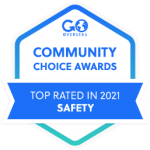
We strive to set the bar for ‘best practice’ in the gap year and experiential education fields and ensure that all of our programs are held to the highest possible standards. This means that your son or daughter is assured to have a quality experience with us.
Learn more about our accreditations here.
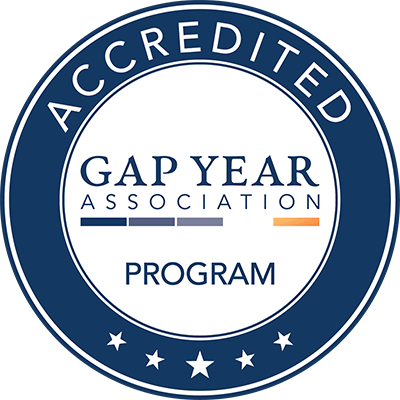
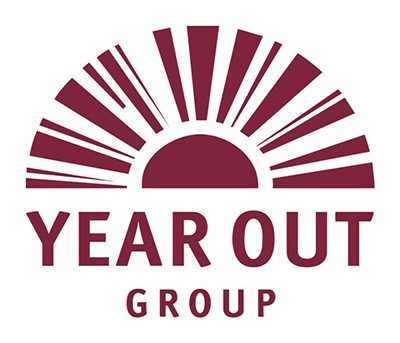
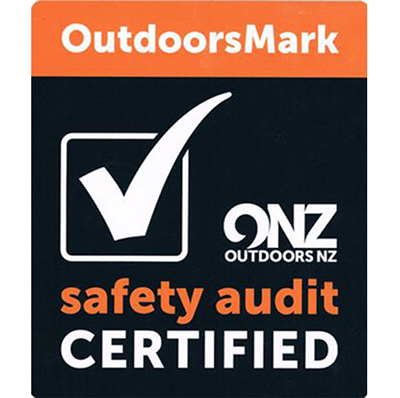
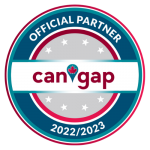
“I have known Scott and Rachel for several years, and I can recommend them in the strongest positive terms. In my opinion, they run the most impressive student-oriented programs available anywhere. I have led numerous study abroad programs and worked with many other companies over the years, so I am most confident in this assessment.”
I worked with Pacific Discovery extensively in the planning, development, and implementation of a Texas State School of Social Work study abroad program to Cambodia and Thailand in winter 2007-2008. This was a three-week in-country program involving fifteen students. I was immediately impressed with Pacific Discovery by their excellent, extensive website, and their quick and professional response to my initial inquiries. They were very attentive to the details of the trip as well as responding to my needs. They gained my full confidence very quickly. Our planning time was shorter than desirable, but they were able to make it all happen very efficiently and effectively. They handled every aspect of the program from start to finish without any problems of any kind, and I truly enjoyed their pleasant, friendly attitude.
Scott was our tour leader, and the students really loved him. I appreciated that he not only managed the logistics of the program so well, but also greatly enhanced the academic quality with his extensive knowledge of Southeast Asia, particularly the history and contemporary culture of Cambodia and Thailand. In addition, Pacific Discovery arranged for several very unique learning opportunities, such as staying with a wonderful family in a village, visiting local schools to interact with students and donate books, volunteering at non-governmental social service agencies, and touring an ecologically-based nature preserve.
I can say that Scott and Rachel changed our lives through this amazing adventure.”
Read more
Catherine Hawkins, 2019
Professor of Social Work
Honorary Professor of International Studies
Texas State University-San Marcos


